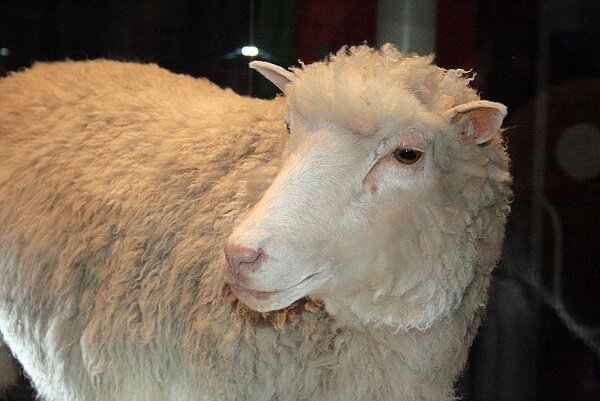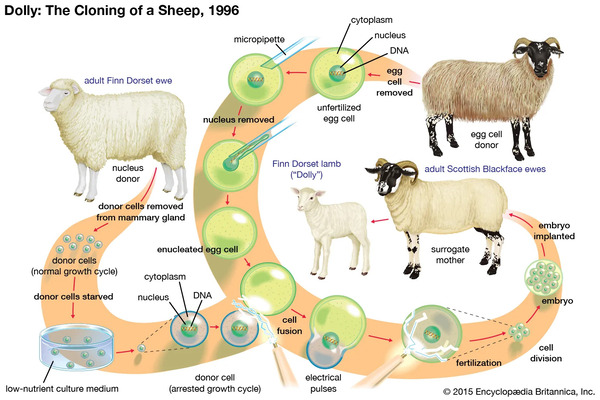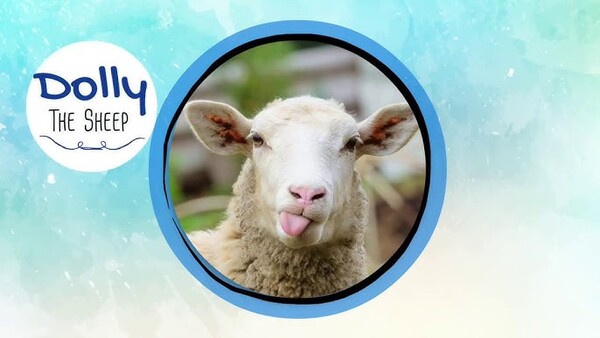Animal cloning is a fascinating field, but it’s not without its controversies and questions. One of the more alarming concerns people have raised is whether cloning animals could accidentally create viruses. While this might sound like something out of a sci-fi movie, the topic combines real scientific principles, ethical questions, and potential public health implications. In this article, we’ll dive into what cloning involves, whether it can create viruses, and why this issue is so important.

Cloning involves creating a genetically identical copy of an organism. Scientists achieve this by transferring the DNA of one animal into an egg cell that has had its nucleus removed. The resulting embryo is implanted into a surrogate mother, and if successful, it grows into a clone of the original animal.
Cloning has been used to reproduce livestock, preserve endangered species, and even advance medical research. However, it's also been met with skepticism due to concerns about its safety and ethical implications.
The idea that cloning an animal could create a virus comes from a misunderstanding of both cloning and how viruses form. Viruses are not created from scratch during cloning. Instead, viruses arise through mutation or transmission between hosts.
That said, cloning is not entirely risk-free. Here are some reasons why cloning could potentially contribute to issues involving viruses:
Weakened Immune Systems in Clones
Clones are often born with health issues, including weakened immune systems. If a cloned animal becomes infected, it might give viruses more opportunities to mutate or recombine, potentially leading to new strains.
Genetic Instability
During cloning, the DNA from the donor animal might not integrate perfectly into the host egg. These errors could, theoretically, result in genetic instability, which might make the cloned animal more susceptible to infections or other complications.
Cross-Species Concerns
In cases where cloning involves genetic material from different species (such as cloning livestock with genes from another animal), there is a small risk of creating conditions that could allow cross-species viruses to emerge.
Viruses form when genetic material from a host mutates or combines with another virus. This process doesn’t happen spontaneously during cloning, but certain conditions in cloning experiments could increase risks indirectly:
Zoonotic Diseases: If cloning involves animals that carry zoonotic diseases (those that can spread to humans), there's always a risk that handling these animals could expose researchers to a virus.
Viral Mutation: Stress on the animal's body or exposure to certain environments could make viruses more likely to mutate.
The possibility of cloning contributing to viral creation raises broader ethical and public health questions:
Disease Spread
Could cloning experiments accidentally lead to a disease that spreads to humans or other animals? While this hasn't happened yet, scientists remain cautious.
Biotechnology Risks
As cloning technology advances, some worry about unintended consequences, such as viruses adapting to new hosts or becoming resistant to treatments.
Regulatory Oversight
There are strict regulations in place for cloning experiments, but some critics argue that these rules might not fully account for all potential risks.
While cloning itself hasn’t directly caused any new viruses, similar concerns have arisen in other fields of biotechnology:
CRISPR and Gene Editing: In genetic engineering, there's a risk of off-target effects, where unintended genetic changes could have unforeseen consequences.
Transgenic Animals: Scientists have experimented with animals that carry genes from other species. This has raised concerns about creating environments where viruses could jump between species.

The good news is that the likelihood of a virus emerging directly from cloning is extremely low. Cloning primarily copies the genetic material of an existing animal, so it doesn’t introduce new elements that could spark a virus. However, as with any advanced technology, careful oversight and continued research are necessary to minimize risks.
Animal cloning is an incredible tool with the potential to benefit medicine, agriculture, and conservation. However, like any powerful technology, it comes with risks that must be managed responsibly. While cloning itself is unlikely to create a virus, the broader processes and experiments surrounding it—such as genetic modification or cross-species cloning—could introduce risks if not carefully monitored.
If you’re fascinated by cloning or worried about its implications, remember that science thrives on transparency and ethical standards. Ongoing research and regulation aim to ensure that cloning remains a safe and beneficial practice for the world.
The ethics of animal cloning is a hotly debated topic. Proponents argue that cloning has immense potential to advance science, medicine, and agriculture. For example, cloning can help preserve endangered species, improve livestock for food production, and develop genetically identical animals for medical research, reducing variability in studies.
On the other hand, critics raise concerns about animal welfare. Cloning often involves high failure rates, with many embryos failing to develop or resulting in animals with severe health issues. Ethical questions also arise about "playing God" and whether humans have the right to manipulate life in this way. Furthermore, cloning raises concerns about prioritizing the interests of humans over the well-being of animals. The debate continues as researchers strive to refine cloning techniques and reduce associated risks.

Yes, cloning can lead to genetic defects, especially in its current state. Many cloned animals suffer from health problems, such as shorter lifespans, compromised immune systems, and organ abnormalities. These issues are largely due to the reprogramming of adult DNA to an embryonic state, a process that isn’t yet perfect.
For instance, the famous cloned sheep Dolly had arthritis and lung disease, conditions typically seen in older animals, despite her young age. These defects often stem from incomplete resetting of genetic markers (epigenetic errors) or damage to DNA during the cloning process. Researchers are working to improve the technology, but genetic defects remain a significant hurdle.
Cloned animals are genetically identical to the donor animal, but they may still differ in certain aspects. Here’s how they compare:
Health Issues: Cloned animals are more prone to health problems, such as larger-than-normal birth sizes (Large Offspring Syndrome), organ malfunctions, and immune deficiencies.
Epigenetics: The cloning process doesn’t always perfectly replicate epigenetic markers—chemical tags on DNA that regulate gene expression. This can lead to developmental issues or subtle differences in appearance and behavior.
Aging: Some studies suggest that cloned animals might inherit the donor's "biological age," meaning their cells could exhibit signs of aging prematurely. However, this is not always the case.
While cloned animals aim to replicate the donor exactly, environmental factors and incomplete cloning techniques can result in unexpected differences.
Cloning could harm biodiversity if it leads to a reliance on genetically identical animals in agriculture or conservation. Biodiversity relies on genetic variation to ensure species’ adaptability to changing environments and resistance to diseases. Overusing clones could reduce this genetic pool, leaving populations vulnerable.
For example, if livestock cloning becomes widespread and farmers rely on a single cloned animal's genetics, an outbreak of disease could devastate entire populations. In conservation, while cloning endangered species can temporarily boost numbers, it doesn’t solve the underlying causes of population decline, such as habitat destruction or poaching.
Cloning should be seen as a supplement to, not a replacement for, efforts to preserve natural genetic diversity.
The future of cloning in medicine and agriculture holds great promise but requires caution.
Medicine:
Therapeutic Cloning: Cloning is already being explored to produce stem cells for regenerative medicine. These cells could help treat conditions such as Parkinson’s disease, diabetes, and spinal cord injuries.
Organ Transplants: Cloning animals to grow organs for human transplantation (xenotransplantation) is another potential application. For example, genetically modified cloned pigs could provide organs compatible with humans.
Agriculture:
Livestock Improvement: Cloning is used to replicate animals with desirable traits, such as high milk production or disease resistance.
Food Security: Cloning could help maintain consistent food quality and supply by producing genetically uniform livestock.
However, ethical concerns, high costs, and technical limitations still pose challenges. Advances in cloning technology could make it more viable and socially acceptable in the future, but rigorous oversight will be essential to ensure its responsible use.
Cloning animals is a double-edged sword. While it offers groundbreaking opportunities in science, agriculture, and medicine, it also raises profound ethical questions and technical challenges. The technology has the potential to save lives, improve food production, and even preserve endangered species, but it must be used responsibly to avoid unintended consequences, such as genetic defects or harm to biodiversity. As the field advances, ongoing dialogue among scientists, ethicists, policymakers, and the public will be crucial to harnessing its benefits while mitigating its risks.
animal tags: Cloning-animals
We created this article in conjunction with AI technology, then made sure it was fact-checked and edited by a Animals Top editor.